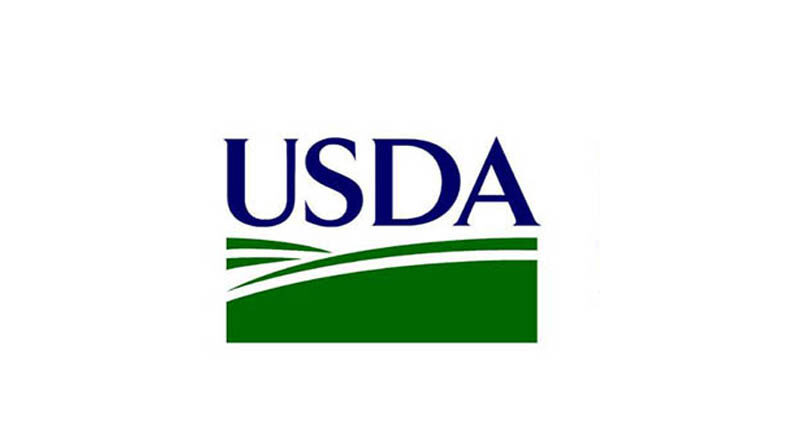USDA Invests in Critical Infrastructure to Lower Costs, Create Jobs, and Combat Climate Change Across Rural America
16 December 2022, US: U.S. Department of Agriculture (USDA) Secretary Tom Vilsack today announced USDA is investing $285 million in critical infrastructure to lower energy costs, expand access to clean energy for people across rural America, and combat climate change (PDF, 920 KB). USDA is also making an additional $300 million available under the Rural Energy for America Program, including $250 million through the Inflation Reduction Act, to spur further investment.
“People in rural America are on the front lines of climate change, and our communities deserve investments that will strengthen our Country’s resilience,” Vilsack said. “President Biden has created a roadmap for how we can tackle the climate crisis and expand access to renewable energy infrastructure, all while creating good-paying jobs and saving people money on their energy costs. These investments underscore the Biden-Harris administration’s commitment to providing funding and resources to rural people and communities across the country to help drive economic security and prosperity.”
USDA is making 844 investments through the Rural Energy for America Program. This program helps farmers, ag producers and entrepreneurs purchase and install renewable energy systems and make energy efficiency improvements. It reflects the many ways USDA Rural Development helps agricultural producers and rural small businesses lower energy costs.
These funds will help people living in 46 states. Some examples include:
- Pennsylvania’s Meadow Ridge Farms, LLC will use a $98,500 grant to purchase and install a 187-kilowatt (kW) ground-mount solar energy system. Meadow Ridge is a poultry operation that has been providing fertile eggs for flu vaccine production for more than 10 years. This project is expected to save the farm approximately $17,000 per year and replace 247,071 kilowatt hours (kWh) per year, which is enough energy to power 22 homes annually.
- In Alabama, H & E Farms, LLC will use a $10,140 grant to install a new oxygen monitoring system which will control pond aeration systems for five catfish production ponds. This system will optimize the pond aeration process by introducing computer controllers into the process. The new system will allow the farm to reduce its energy consumption by 35 percent. This is the equivalent of 56,160 kWh and 878 gallons of diesel fuel per year, which is enough to power five homes and fuel one vehicle for a year.
- Marzen Family Farms, LLC., will use a $16,000 grant to install a more energy-efficient grain drying system for drying corn on the grain and livestock farm near Stacyville, Iowa. This project is expected to save $8,122 in energy costs per year and 119,570 kWh of energy per year (57 percent of previous use), which is enough energy to power 11 homes.
USDA also announced today that it will make $300 million available under the Rural Energy for America Program to expand renewable energy and support energy-efficiency projects for people living in rural America. This funding includes $250 million provided by the Biden-Harris Administration’s historic legislative package known as the Inflation Reduction Act. The deadline to apply for grants is March 31, 2023. Applications for technical assistance grants are due Jan. 31, 2023. Applications for loan guarantees are accepted year-round.
Interested applicants are encouraged to contact their local USDA Rural Development State Energy Coordinator (PDF, 511 KB) well in advance of the application deadlines to discuss their project and ask any questions about the REAP program or the application process. Additional information on the required materials and how to apply for the REAP program are available in the Dec 15, 2022, Federal Register (PDF, 291 KB). Projects in underserved areas are prioritized for funding under this notice.
Background:
The Rural Energy for America Program investments announced today reflect the goals of the Biden-Harris Administration’s Inflation Reduction Act.
In August, Congress passed the Biden-Harris Administration’s historic legislative package known as the Inflation Reduction Act to reduce energy costs for families and create thousands of good-paying jobs for people across rural America. The Inflation Reduction Act represents the largest single investment in rural electrification since the passage of the Rural Electrification Act in 1936.
The Act provides funding to USDA Rural Development to help eligible entities purchase renewable energy and zero-emission systems and make energy-efficiency improvements that will significantly reduce energy costs and greenhouse gas emissions. For example, it provides:
- Up to $1 billion for RUS loans for renewable energy infrastructure; up to $2.025 billion for the RBCS Rural Energy for America Program (REAP), with $303 million set aside for underutilized technologies and technical assistance.
- Up to $500 million in RBCS grants for infrastructure improvements to blend, store or distribute biofuels. This includes installing, retrofitting or upgrading dispensers for ethanol at retail stations as well as home heating oil distribution centers.
- Up to $9.7 billion for RUS to offer loans, grants, loan modifications and other financial assistance to support the purchase of renewable energy systems, zero-emission systems and carbon capture systems.
This commitment to cleaner energy will help USDA Rural Development provide resources to reduce climate pollution and ensure that rural people and their communities have access to a clean, secure energy supply to keep people and economies prepared for the future.
Under the Biden-Harris Administration, Rural Development provides loans and grants to help expand economic opportunities, create jobs and improve the quality of life for millions of Americans in rural areas. This assistance supports infrastructure improvements; business development; housing; community facilities such as schools, public safety and health care; and high-speed internet access in rural, Tribal and high-poverty areas. For more information, visit www.rd.usda.gov. If you’d like to subscribe to USDA Rural Development updates, visit our GovDelivery subscriber page.
USDA touches the lives of all Americans each day in so many positive ways. Under the Biden-Harris Administration, USDA is transforming America’s food system with a greater focus on more resilient local and regional food production, ensuring access to healthy and nutritious food in all communities, building new markets and streams of income for farmers and producers using climate, smart food and forestry practices, making historic investments in infrastructure and clean energy capabilities in rural America, and committing to equity across the Department by removing systemic barriers and building a workforce more representative of America. To learn more, visit www.usda.gov.
Also Read: GROWiT launches India’s first protective farming eCommerce portal
(For Latest Agriculture News & Updates, follow Krishak Jagat on Google News)















